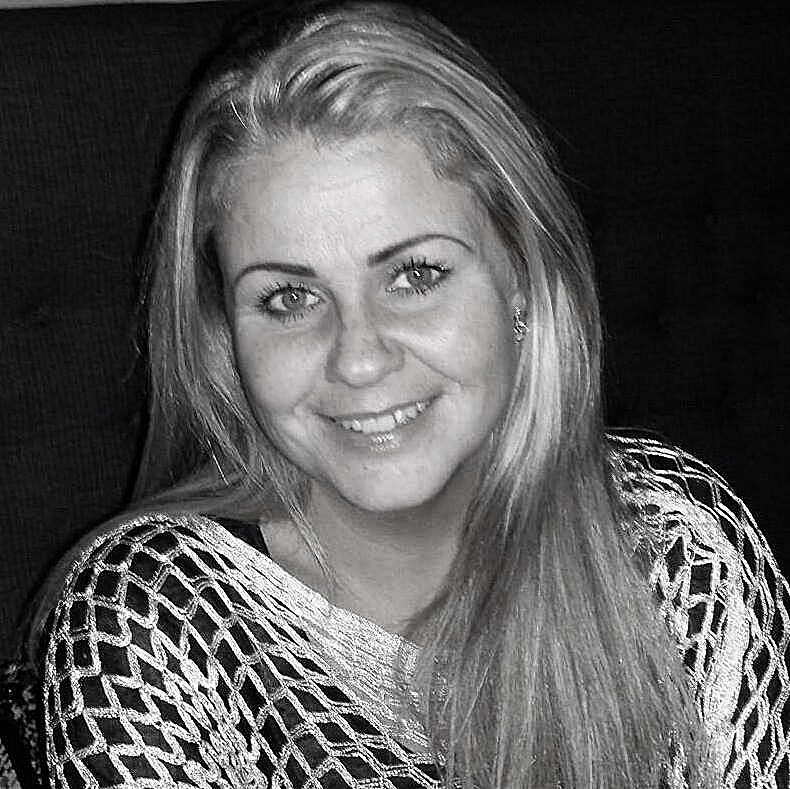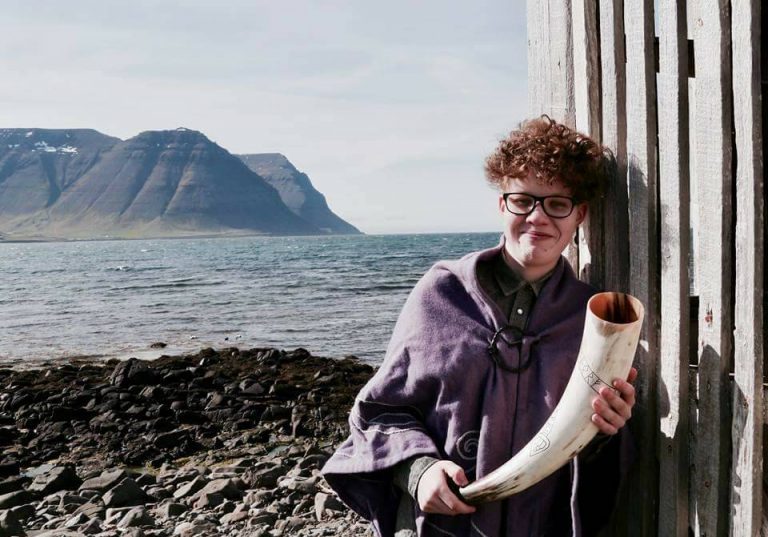A mother of a young trans boy says that society as a whole has been remarkably understanding towards her son. With one exception: A psychiatrist who refused to take his claim of being a boy seriously.

Sólveig Hólm’s son is trans but was raised as one of three sisters until he was thirteen years old. Now he is fourteen years old, with a new name and a new and much happier life. Sólveig is one of the parents partaking in a panel discussion at a symposium about trans children and youths this Friday in Iðnó. She told GayIceland her story.
“It all started in the spring 2016, when my son was thirteen years old,” she says when asked when she knew that her child which she thought was a girl was in fact a boy. “When he was eleven he started to talk about that he might be homosexual but at thirteen he knew he was in fact a boy. When he came out to us his father and I didn’t know anything about trans issues, but of course we supported him and started going for counseling at the headquarters of The National Queer Organisation, Samtökin ’78, to learn about being trans and how to go about coming out to the world.”
“That psychiatrist really didn’t take him seriously when he came out as a boy. Kept saying that this was just some phase caused by teen angst and hormonal changes and that it would soon blow over.”
The counselor at Samtökin ’78 suggested that Sam would be allowed to get used to the role as a boy at home at first, there was no hurry to tell the world right away.
“So he told us his new name, Sam Alex, which he had already chosen, and we started to call him by that name and interact with him as a boy,” Sólveig explains. “We made occasional mistakes at first, calling him his old name and I kept referring to “my girls” when talking about my children, but little by little we got used to it and today it feels like he has always been Sam, which of course he has, we just didn’t know.”
Coming out at school was a bigger challenge and after Sólveig and her husband started going to group meetings for families and loved ones of trans children they were advised to make Sam switch schools so he could start with a clean slate as a boy.
“So when he started in eighth grade he started at Ingunnarskóli in Grafarholt, where he was instantly registered under his new name and accepted as a boy. The counselor from Samtökin ’78 went with him on the first day of school and explained to the other children that he was trans gender and what that means. It was a great help and the kids just accepted him on the spot. I think education in trans matters is crucial for society to understand and accept trans children and his new school has been wonderful to him in every respect. There have been no obstacles there whatsoever.”
The psychiatrist refused to listen
Speaking of obstacles Sólveig says that everyone, family, friends, acquaintances and society as a whole has been remarkably understanding and open to this new turn Sam’s life has taken. With one notable exception; his psychiatrist refused to take his claim of being a boy seriously.

“He has a diagnosis of ADHD and Tourette and had been seeing this child psychiatrist for a while,” she explains. “That psychiatrist really didn’t take him seriously when he came out as a boy. Kept saying that this was just some phase caused by teen angst and hormonal changes and that it would soon blow over. He even kept referring to Sam as a she and calling him his old name the whole time. I told him time and again that Sam was a he, but he just dismissed it. That was rather bizarre and the only negative response we have gotten this whole time.”
One of the things that the psychiatrist failed to do was referring Sam to the trans team at the Child and Adolescent Psychiatric Department, BUGL, which is necessary for getting in there. Sólveig says it was really frustrating and that in the end they had to go to their GP to get that reference.
“We reminded the psychiatrist three times to send in the application form to BUGL but he just didn’t do it. After weeks of this we decided to stop seeing him and asked our GP to refer Sam to the trans team. Which he did in a matter of days and three weeks later he got in, it was not harder than that!”
It’s obvious that Sólveig is really stunned and angry by this conduct of the psychiatrist but being a positive person she refuses to dwell on it.
“It’s honestly the only negative experience we have had in the process of Sam coming out as trans and the support and positivity we have met everywhere else completely outweighs it,” she says. “We just didn’t expect this response from a psychiatrist.”
“We just have to be aware of the fact that attitudes can change rapidly, keep up the education and keep the discussion open. I think that leads to a much better and happier society for us all.”
Sólveig says that that Sam was socially very isolated before. “By his own choice and in retrospect I think that part of that was because he didn’t feel he fitted in with the girls and was, as a girl, not accepted in the boys groups. He had three friends when he was younger and they were all boys. He didn’t feel at home with groups of girls which of course makes perfect sense now.”
Coming out has completely changed Sam’s life, he is accepted as one of the boys in his new school and once a week he goes to a meeting for queer youngsters at the headquarters of Samtökin ’78.
“Yes, that’s wonderful,” Sólveig exclaims. “He never misses a meeting and always wants to go, which is rare for him as he is not very social as a rule. The work that Samtökin ’78 is doing with these kids and their loved ones is remarkable and I’m very grateful for it. It has really helped to make Sam a much happier and fulfilled kid.”
Little support from the health system
Sam is still meeting with the trans team at BUGL but after that is over Sólveig says that there is not much more support from the health system.
“After that I don’t know what happens. He is too young to be legally registered as a boy and the reassignment process can’t begin until he is eighteen. But we are not thinking that far a head yet. We didn’t want to put him on blockers as they can have really heavy side effects both physically and mentally, and he was already in puberty when he came out so they would not have had much effect anyway. So he has undergone physical changes relating to puberty, which are a cause of concern for him, but on the whole he is so much happier now than two years ago that I can’t even begin to describe it. We will just take this process one step at a time and see where that leads. The main issue is for him to be happy and at ease with himself.”
Sólveig will parttake in a panel discussion at the symposium in Iðnó, what will be her main points of discussion?
“That everyone has a right to be as he is,” she answers instantly. “There is this tendency to try to fit everyone into some narrow box by society, but I think that there is not one person in the universe who actually fits in those boxes and categories. We are all unique and we should aim at celebrating that uniqueness instead of trying to smolder it by previously decided rules about how people are supposed to be.
Luckily there has been a huge change of attitude towards trans people here in Iceland in the last few years and the kids that are the same age as Sam have not even given a thought to the notion that he is in some way different. He’s just who he is.
We just have to be aware of the fact that attitudes can change rapidly, keep up the education and keep the discussion open. I think that leads to a much better and happier society for us all.”
The symposium, which is called Under the Rainbow starts at Iðnó on Friday March 2nd at 9 AM and is open to everyone.


